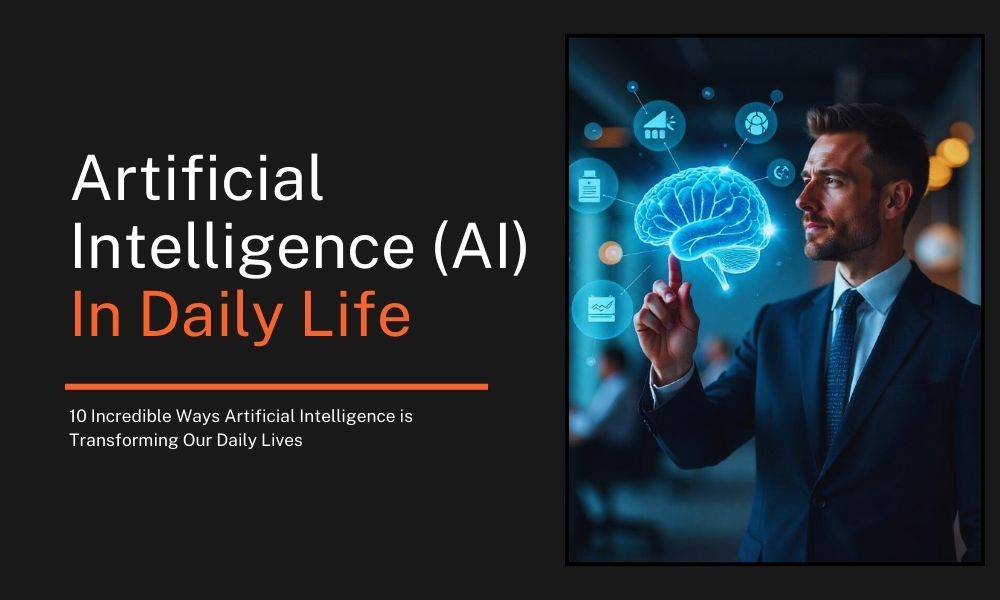Artificial intelligence (AI) has become an integral part of our daily lives, transforming the way we work, communicate, and interact with technology. From virtual assistants to personalized recommendations, AI-powered applications have made routine tasks more efficient and convenient. Here, we explore some of the most prominent applications of AI in everyday life.
1. Virtual Assistants
AI-powered virtual assistants like Siri, Alexa, and Google Assistant have become household names. These tools use natural language processing (NLP) to understand and respond to user commands, enabling tasks such as setting reminders, checking the weather, or controlling smart home devices. They are designed to simplify daily routines and provide instant access to information.
2. Smart Home Devices
AI has revolutionized home automation with smart thermostats, lighting systems, and security cameras. Devices like Nest and Ring use AI to learn user preferences, optimize energy consumption, and enhance home security. AI-driven algorithms analyze data from sensors and cameras to detect unusual activities, providing real-time alerts to homeowners.
3. Personalized Recommendations
From streaming platforms like Netflix and Spotify to e-commerce sites like Amazon, AI plays a crucial role in delivering personalized recommendations. Machine learning algorithms analyze user behavior, preferences, and viewing or shopping history to suggest content or products tailored to individual tastes.
4. Healthcare
AI applications in healthcare are improving patient care and diagnosis. Wearable devices like Fitbit and Apple Watch monitor vital signs and provide insights into health metrics. AI-powered tools assist doctors in diagnosing diseases through medical imaging, analyzing symptoms, and even predicting potential health risks based on patient data.
5. Transportation
AI is transforming transportation through applications such as navigation systems, ride-sharing services, and autonomous vehicles. Apps like Google Maps and Waze use AI to provide real-time traffic updates and suggest optimal routes. Ride-sharing platforms like Uber and Lyft use AI algorithms to match drivers with riders efficiently, reducing wait times.
6. Customer Service
Chatbots and AI-driven customer support systems are widely used in industries such as retail, banking, and telecommunications. These systems can handle inquiries, resolve complaints, and provide assistance 24/7. By using NLP, they understand customer queries and deliver accurate responses, improving user experience.
7. Education
AI-powered tools are enhancing learning experiences through personalized education platforms. Applications like Duolingo and Khan Academy use AI to adapt lessons to individual learning styles and paces. Additionally, AI helps educators by automating administrative tasks, such as grading and tracking student progress.
8. Financial Services
AI is widely employed in the financial sector for fraud detection, credit scoring, and investment analysis. Algorithms analyze transaction patterns to identify suspicious activities, while robo-advisors provide personalized investment advice based on user goals and risk tolerance.
9. Social Media
Social media platforms like Facebook, Instagram, and Twitter rely on AI to curate content, detect harmful posts, and enhance user engagement. AI algorithms analyze user interactions to display relevant posts, ads, and connections, creating a more personalized social media experience.
10. Retail and Shopping
AI enhances the shopping experience through virtual try-on solutions, automated inventory management, and cashier-less stores. For example, Amazon Go stores use AI to track items customers pick and automatically charge them upon exit, eliminating the need for traditional checkout lines.
Conclusion
The applications of artificial intelligence in daily life are vast and continually expanding. By streamlining processes, enhancing convenience, and enabling smarter decision-making, AI has become an indispensable part of modern living. As technology evolves, we can expect even more innovative AI-driven solutions to address everyday challenges and improve quality of life.



